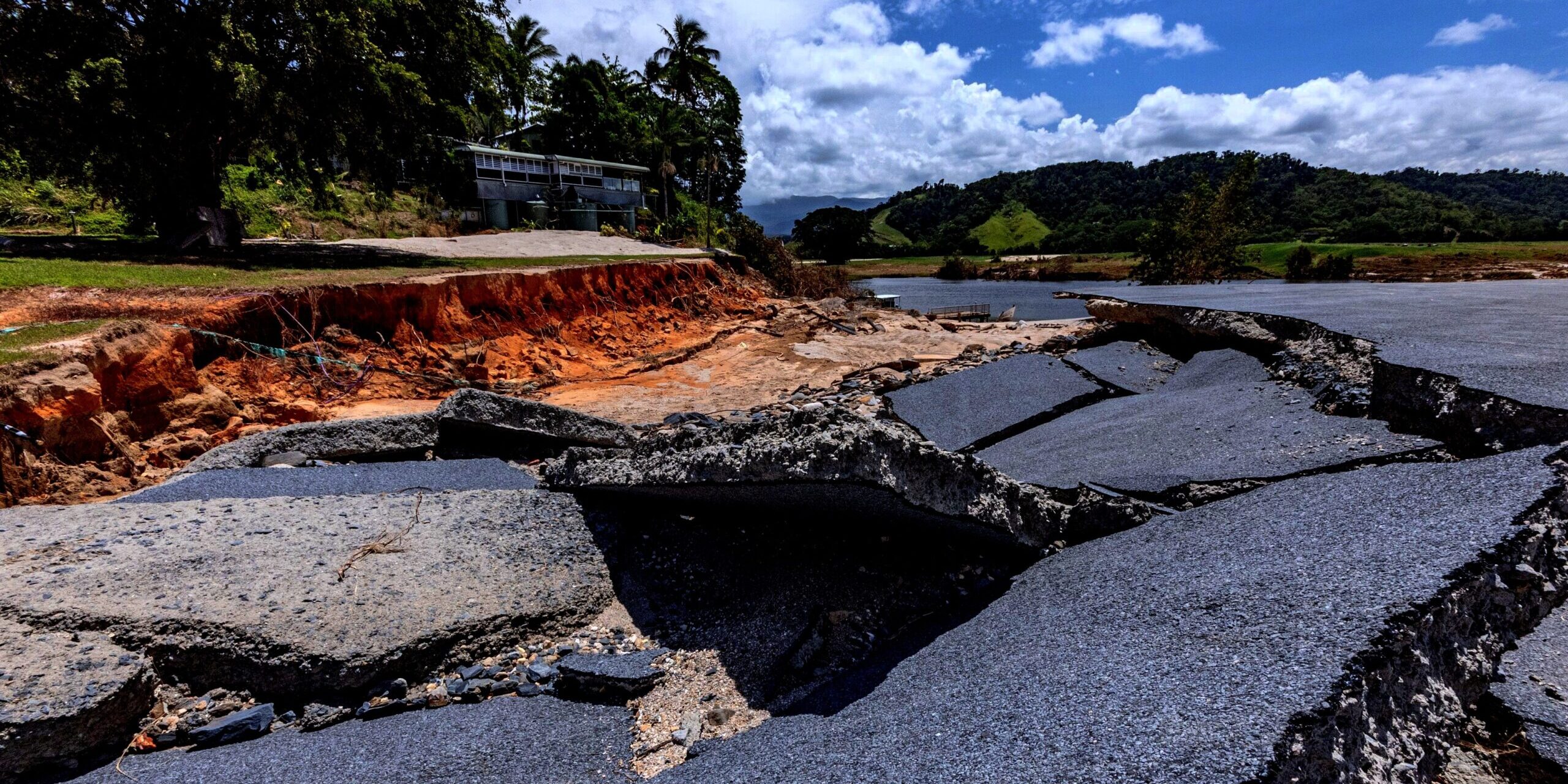Background:
In December 2023, Cyclone Jasper wreaked havoc in the serene landscapes of Port Douglas, leaving a trail of destruction that extended far beyond the visible damage. As if the cyclone’s fury wasn’t enough, subsequent unprecedented rainfall in the area exacerbated the challenges faced by the Douglas Shire Council, particularly concerning their water infrastructure. The aftermath of this natural disaster has led to a series of issues in treating water from catchments affected by the Cyclone, as well as leaking and damaged water pipes across the council’s network, posing a significant threat to the region’s water supply stability.
Port Douglas, known for its picturesque coastal beauty and vibrant tourism industry, faced a critical juncture as it approached the busy Easter period. This time of the year sees an influx of visitors, placing immense pressure on the local resources, including water. With the looming specter of water shortages, the council was confronted with the urgent task of addressing the vulnerabilities in its water distribution system.
One of the primary challenges arising from the cyclone and subsequent heavy rainfall was the increased strain on the reticulation pipes. The geological composition of the area, including sand and dirt surrounding the underground pipes, played a crucial role. During periods of intense rainfall, the soil absorbs water, leading to shifts in the earth around the pipes. These shifts, albeit seemingly minor, had profound consequences, ranging from stress fractures to complete pipe ruptures.
The process unfolds as follows: as rain saturated the soil surrounding the underground pipes, it compromised the stability of their positioning. This instability, coupled with the weight of the water-logged soil, caused the pipes to crack or become obstructed. In more severe cases, the pressure buildup caused the pipes to break entirely, resulting in uncontrolled water leaking out.
The unprecedented nature of the rainfall experienced compounded these issues, making traditional preventive measures ineffective. It became evident that the focus must shift towards rapid detection and efficient repair of leaks to mitigate the risk of water shortages and infrastructure failures.
In essence, the case of Douglas Shire Council in Port Douglas serves as a poignant example of the intricate interplay between natural disasters, water infrastructure vulnerabilities, and the imperative for proactive measures in safeguarding critical resources. By delving deeper into the specifics of this case study, water utilities and councils worldwide can glean valuable insights into addressing similar challenges within their respective domains.
The Solution:
To tackle this formidable challenge, the Douglas Shire Council looked to engage a specialised leak detection business with the expertise and agility to deploy teams swiftly and effectively.
Detection Services Group (DSG) has extensive experience in leak detection and the ability to mobilise a large team at short notice, whilst undertaking pipeline condition assessment in parallel.
DSG planned to undertake acoustic survey of all accessible assets to identify and pinpoint leaks using a range of advanced electronic equipment. All water assets were surveyed systematically with our specialist listening equipment. Using our experience and supported by AI interpretation, problematic areas were scrutinised using enhanced technology to allow the accurate assessment of the integrity of the water asset.
What did DSG do?
Detection Services deployed six (6) experienced leak detection technicians from across their Operational Areas including Queensland, New South Wales, Victoria and New Zealand. Technicians conducted acoustic surveys of over 320kms of mains reticulation and over 35kms of trunk mains. Technicians also conducted audits on four hotels, a resort swimming pool and caravan park, and undertook additional responsive works.
In addition, two (2) experienced water loss engineers with international expertise were deployed to co-ordinate efforts and review system losses.
DSG played a pivotal role in identifying vulnerable areas within the water network, utilising advanced technologies such as acoustic sensors to pinpoint leaks accurately.
The establishment of a NRW Project manager to interrogate data and water meter consumption was a key element in the success of this project, as it enabled site teams to be directed based on results and analysis. The ability to forecast the savings on a dynamic basis allowed all parties to be confident in being able to project water consumption and demands with a quick response from Douglas Shire Council teams when carrying out repairs.
Open and ongoing communication with the client was imperative for a successful project. The Douglas Shire Council team had access to our field data collection and process management platform, so were able to see and action all leaks or defects as soon as they were reported. If a leak was above a certain volume or visible, the leak detection technicians informed site supervisors, who then communicated with the team leader of the repair crews, to ensure it could be actioned immediately.
The project was not without its challenges. Operations were halted for several days due to very heavy rains. Significant flooding in certain areas restricted access to some assets and identification of the alignments proved difficult. In addition to the rain, conditions were extremely hot and humid so risk of heatstroke and heat related illness were front of mind. To mitigate these risks, limits were placed on the number of kilometers permitted to be walked in a single day by technicians.
The Outcome:
For the first phase of this project, we identified 181 leaks with combined estimated losses of 974.67L per minute. This equates to over 200 Olympic sized swimming pools each year!
The Benefits to Douglas Shire Council and the Wider Community
The case study of Douglas Shire Council in Port Douglas presents a compelling narrative of resilience and innovation in the face of natural disasters and infrastructure challenges. Following the devastation caused by Cyclone Jasper and subsequent heavy rainfall, the council was confronted with the urgent task of safeguarding the region’s water supply stability.
The primary challenge revolved around the strain on reticulation pipes due to shifts in the soil surrounding them, leading to leaks and potential ruptures. Traditional preventive measures proved ineffective against the unprecedented rainfall, necessitating a shift towards rapid detection and efficient repair of leaks.
The council’s collaboration with Detection Services proved pivotal in addressing this challenge. By deploying specialised leak detection technicians and advanced electronic equipment, over 181 leaks were identified, resulting in significant savings of over 500 megalitres a year. Moreover, the establishment of an NRW Project manager facilitated data interrogation and dynamic forecasting, enabling swift responses to repair needs.
Despite facing challenges such as adverse weather conditions and operational limitations, the project was a significant success. Open communication channels between DSG and the council ensured immediate action on identified leaks, mitigating potential water shortages, particularly crucial during the busy Easter period.
The proactive approach adopted by Douglas Shire Council, coupled with the expertise of DSG, exemplifies effective crisis management and infrastructure resilience. The project not only addressed immediate concerns but also provides valuable insights for water utilities and councils worldwide facing similar challenges, emphasising the importance of rapid detection, efficient repair, and collaborative partnerships in safeguarding critical resources.









